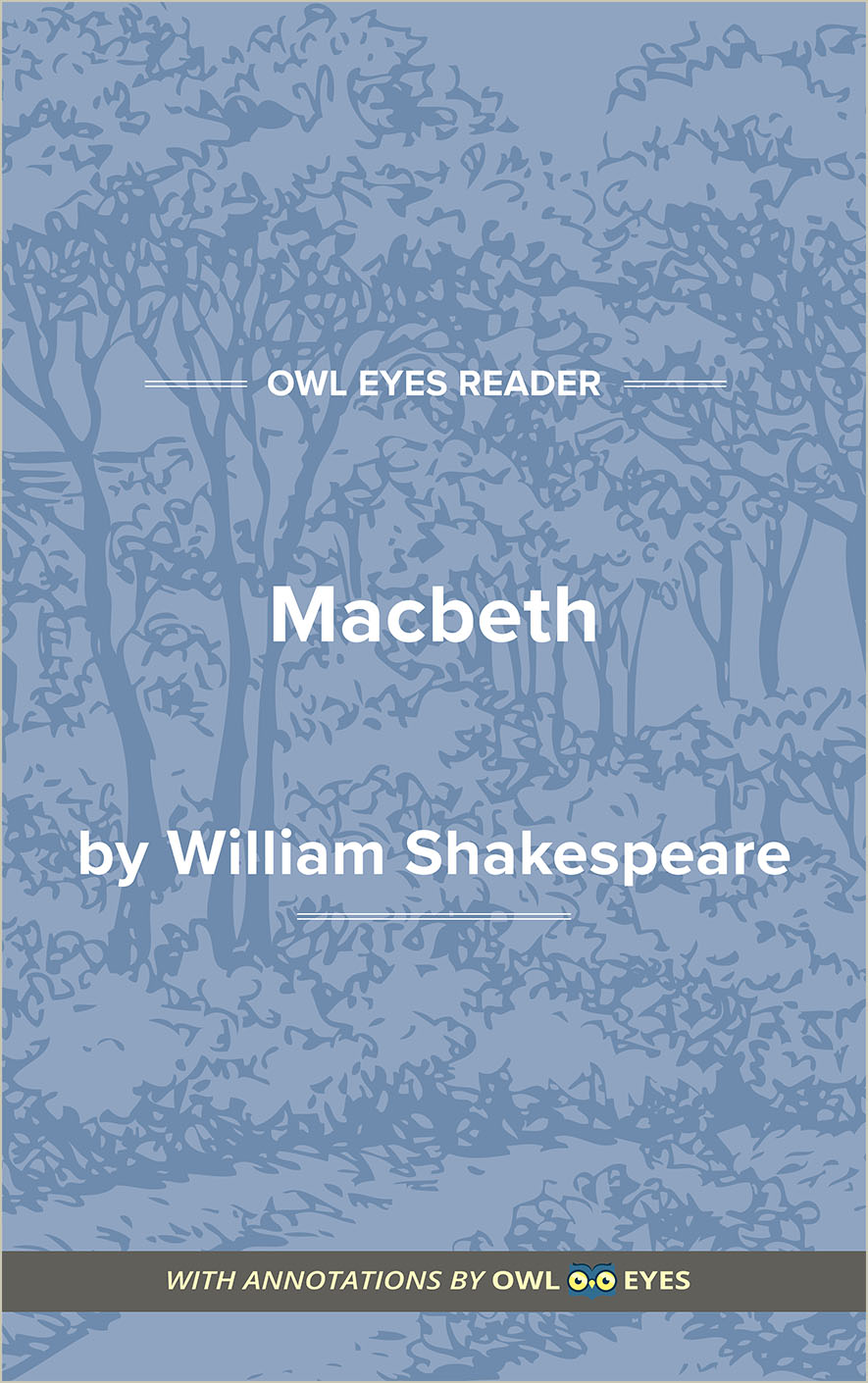Study Guide
Analysis Pages
Summary
On a lonely heath in Scotland, three weird witches sing their riddling runes and say that soon they will meet Macbeth. Macbeth, the noble thane of Glamis, had recently been victorious in a great battle against Vikings and Scottish rebels. For his brave deeds, King Duncan decides to confer upon him the lands of the rebellious thane of Cawdor.
On his way to see the king, Macbeth and his friend, Banquo, meet the three witches on the dark moor. The wild and frightful women greet Macbeth by first calling him thane of Glamis, then thane of Cawdor, and finally, king of Scotland. Finally, they prophesy that Banquo’s heirs will reign in Scotland in years to come. When Macbeth tries to question the three women, they vanish.
Macbeth thinks very little about the strange prophecy until he meets one of Duncan’s messengers, who tells him that he is now thane of Cawdor. This piece of news stuns Macbeth, but Banquo thinks the witches’ prophecy is an evil ruse to whet Macbeth’s ambition and trick him into fulfilling the prophecy. Macbeth does not heed Banquo’s warning; hearing the witches call him king has gone deep into his soul. He ponders the possibility of becoming a monarch and sets his whole heart on the attainment of this goal. If he could be thane of Cawdor, perhaps he could rule all of Scotland as well. As it is now, Duncan is king, and he has two sons who will rule after him. The problem is great. Macbeth shakes off his dreams and accompanies Banquo to greet Duncan.
Duncan is a kind, majestic, gentle, and strong ruler; Macbeth is fond of him. When Duncan, however, mentions that his son, Malcolm, will succeed him on the throne, Macbeth sees the boy as an obstacle in his own path; he hardly dares admit to himself how this impediment disturbs him. Duncan announces that he will spend one night of a royal procession at Macbeth’s castle. Lady Macbeth, who is even more ambitious than her husband, sees Duncan’s visit as a perfect opportunity for Macbeth to become king. She determines that he should murder Duncan and usurp the throne.
That night there is much feasting in the castle. After everyone is asleep, Lady Macbeth tells her husband of her plan for the king’s murder. Horrified, Macbeth at first refuses to do the deed, but when his wife accuses him of cowardice and dangles bright prospects of his future before his eyes, Macbeth finally succumbs. He sneaks into the sleeping king’s chamber and plunges a knife into his heart.
The murder is blamed on two grooms whom Lady Macbeth had smeared with Duncan’s blood while they were asleep. Suspicions, however, are aroused in the castle. The dead king’s sons flee—Malcolm to England and Donalbain to Ireland—and when Macbeth is proclaimed king, Macduff, a nobleman who had been Duncan’s close friend, suspects him of the bloody killing.
Macbeth begins to have horrible dreams; his mind is never free from fear. Often he thinks of the witches’ second prophecy, that Banquo’s heirs will hold the throne, and the prediction torments him. Macbeth is so determined that Banquo should never share in his own hard-earned glory that he resolves to murder Banquo and his son, Fleance.
Lady Macbeth and her husband give a great banquet for the noble thanes of Scotland. At the same time, Macbeth sends murderers to waylay Banquo and his son before they can reach the palace. Banquo is slain in the scuffle, but Fleance escapes. Meanwhile, in the large banquet hall, Macbeth pretends great sorrow that Banquo is not present. Banquo is present in spirit, however, and his ghost majestically appears in Macbeth’s own seat. The startled king is so frightened that he almost betrays his guilt when he sees the apparition, but he is the only one to see it. Lady Macbeth quickly leads him away and dismisses the guests.
More frightened than ever at the thought of Banquo’s ghost having returned to haunt him and of Fleance who had escaped but who one day could claim the throne, Macbeth determines to seek solace...
(The entire page is 1,081 words.)
Owl Eyes subscribers get unlimited access to our expert annotations, analyses, and study guides on your favorite texts. Master the classics for less than $5/month!

